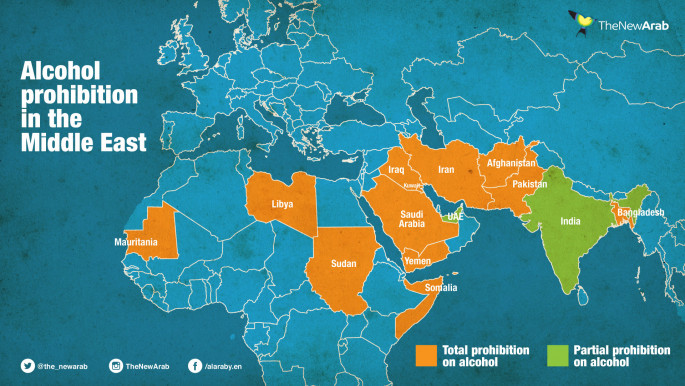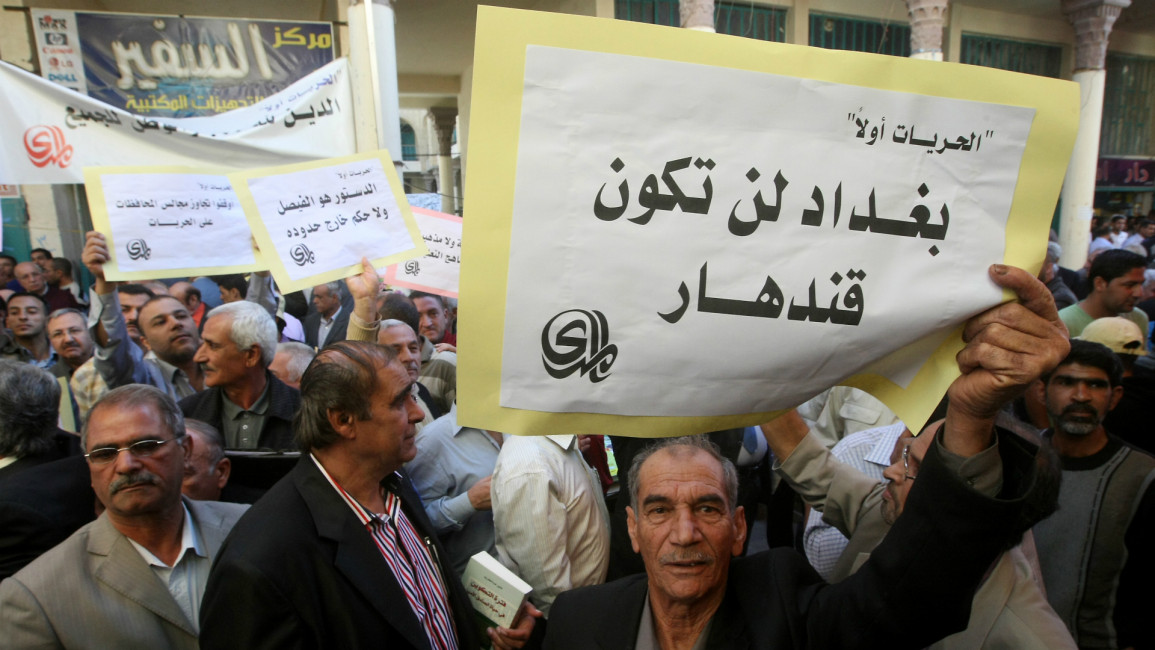Iraq: Alcohol ban raises concern over drug smuggling
Only days after Iraq’s parliament passed a law banning the sale and consumption of alcohol in the country, police officials say the prohibition has led to increases in the purchase of narcotics smuggled into the country from Iran.
“Alcohol has not run out of the market, but many are beginning to store and pay in anticipation, and drug cartels are flourishing again,” a high-ranking Iraqi police official told The New Arab’s sister site, adding that sales of Valium, allergy tablets, and other medications were on the increase.
Last Saturday Iraq’s parliament voted to ban the sale, import and production of alcohol in the country in a surprise vote.
Supporters of the ban claim that it is justified by the constitution, which includes stipulations prohibiting any law deemed to contradict Islamic principles.
Protesting prohibition
However opponents, such as members of Iraq’s Christian minority, have argued that the ban violates a constitutional precept guaranteeing the traditions of religious minorities.
Fines for violating the law have been set between 10 million and 25 million dinars (around $8,000 to $20,000).
 |
|
| [Click to enlarge] |
Analysts have warned that the alcohol prohibition could result in increased drug use as an alternative, and increases in crime rates.
“The decision leads to a great risk of increases in drug use,” Haider al-Marsoumi, an Iraqi security expert told The New Arab’s sister site, adding that many people reliant on alcohol could now turn to drugs.
Al-Marsoumi added that a major problem the legislation could face relates to the fact that many members of the security forces and politicians use alcohol and drugs, and are even involved in their trade.
One report carried out by the Ibn al-Nafis hospital in Baghdad, has recorded that one in every three Iraqi army recruits uses drugs during their service.
Some Iraqi parliamentarians have objected to the alcohol ban for constitutional reasons, claiming it infringes on the rights of minority groups.
However, others have accused Islamic political parties that voted for its ban of voting for its implementation while being involved in the drugs trade.
These include Faiq Sheikh Ali, leader of the secular People’s Party who has claimed that “these factions are banning alcohol because they are growing opium in the south of Iraq and importing drugs from Iran.”
Since the ban came into place many Iraqis have taken to social media with hashtags such as “Baghdad will not become Qandahar” trending on Twitter, with concern that its implementation in particular will lead to increases drug addiction amongst people aged between 18-30 and increased crime rates.
In the wake of opposition to the ban on Wednesday Iraq's President Fuad Masum called for it to be revised claiming it was inconsistent with "democratic legal principles".


![The White House Correspondents' dinner is seeing renewed scrutiny amid Israel's war in Gaza. [Brooke Anderson/The New Arab]](/sites/default/files/styles/image_212x120/public/2024-04/IMG_5497.jpg?h=71976bb4&itok=TX4OspBM)